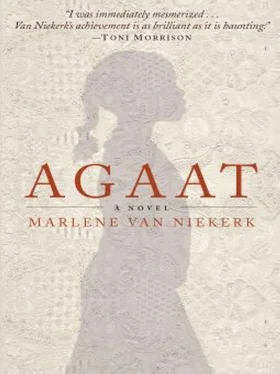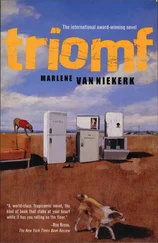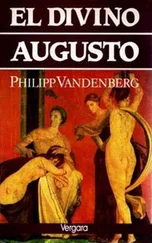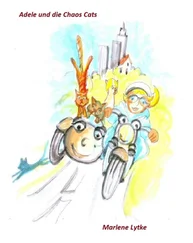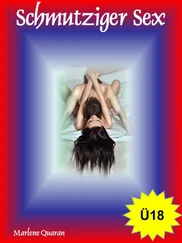But I know by now, birthdays always bring out the nastiness in her.
Then I looked like a blue-headed lizard, white spot between the eyes, the one I’m always given right there when she makes me up, to warn me against spying, to remind me of what I shouldn’t have seen that time with my head against the whitewashed window sill of the outside room. Mascara. Blazing Bat on my drooling mouth. My neckbrace doused with six kinds of perfume and the powder-puff creating clouds around my head. And drowned the sense in odours. Just about choked in powder that day. So then she had an excuse. So then she tipped out the drawers of the dressing table into black plastic bags.
Claims she was acting on advice from Leroux, but she’s always been one step ahead of him.
There must be nothing to irritate the nose, he’s supposed to have said to her.
We’ve thought of that already, she said. No dogs, no plants, no dusty shoes or dirty things ever enter this room. And from now on no face powder, no perfume, no under-arm sprays that can make her sneeze or snort.
She had to stop herself. It was one of those days.
So now she’ll just have to shine and stink, was on the tip of her tongue. But Mum and calamine it was to be.
Keep a good record of everything, Leroux said, and Agaat pointed out the farm calendar where she’d long been making notes in the empty columns. With her hands clasped in front of her she listened while he read out her list. Urine, bowel movements, eat, sleep, headaches, phlegm, temperature, breathing, state of mind, force of deglutition, medicine, exercise.
She’ll want to judge me in as many categories as she can think up, that’s certain. Sphincter pressure, melting-point, share suction, sowing density, rust resistance, siphon level, tailwind, drainage slope, crimp index, inverse proportion, Sphaeropsis malorum , core rot. O rose thou art sick.
I can see that you’re a very good nurse, Agaat, said Leroux after studying the calendar. Excellent records. Keep up the good work.
And she did. Unstoppable she was. She unscrewed the inside door of my bedroom because my new bed wouldn’t pass through.
Don’t be stupid, I wanted to say, bring it along the stoep and through the swing-door. But by that time I couldn’t really speak all that well any more.
Perhaps it’s better like this. Now I can hear everything that goes on in the house. I can hear Agaat approaching. I can hear what her footsteps sound like. I can adjust myself.
My bedroom door was the last door she unscrewed. The other doors in the house disappeared one by one.
So that Ounooi shouldn’t have to turn doorknobs, so that Ounooi can get in and out easily with her walking sticks and her walking frame and her wheelchair, she said.
But that was just one half of the reason. The other half is her own problem, Agaat doesn’t like closed doors. And she doesn’t like cluttered surfaces.
She carried in a melamine surface on trestles and on that everything we need is arranged in rows and piles against the wall. Packs of swabs, neckbraces for every occasion, quick-drying sheets, mattress protectors, clean hospital gowns, bedpans. Under the trestle table are three enamel pails with lids.
There’s a triple-level stainless hospital trolley with washbasin and clean cloths and towels and disinfectants and medicinal soap.
And a smaller trolley of hard plastic with removable baskets containing my medicines and pills in bottles and boxes. Fresh water in a carafe. Sponges, cotton wool, ear-buds, ointment for my lips that dry out, paper towels for accidents, tissues for drool, for tears. Things get disordered quickly in the trolley. Agaat tidies it every day, sees to it that all the bottles and tubes are tightly shut.
And then there’s the bridge, a broad flat shoulder on one steel leg that fits over my bed, and on which my little bowls of food and my spout-jugs full of thickened tea can stand. And my reading stand.
Above my bed is a reading lamp, 100 watts with an adjustable head on a long arm, which can extend.
Enough light in the shearing shed, says Agaat, you don’t dip a sheep in the dark.
But normally she doesn’t switch it on at night. Only when absolutely necessary.
Next to my bed is a wooden stool on which she sits when she’s feeding me. In front of the window is her upright chair on which she sits when she reads to me or when she embroiders. She brought it in from her outside room in the backyard. She never sits there anymore anyway she says, she only washes and changes there. It’s now just her locker room, she says.
She sleeps in the passage. She needn’t, she knows that. There are many rooms in the house.
All the rooms of my house, the progress to where I am now, the history leading to this last room, the domain remaining to me. Shrinking domain. I’m locked up in my own body, my limbs form a vague contour under the bedspread.
Now my preamble stretches over my feet. They’re flat, they lie open. The bedspread subsides over my shins. My kneecaps form two bumps, the flesh has fallen from my thighs, between my hips there is a hollow. Further than that I cannot see myself. My neck is locked at the angle determined for me by Agaat. Her pillows are stacked like bunkers around me. In the mirror I can see something, a shadow of myself, my sloping shoulders, my face on which my features appear vague, as if an artist had rubbed his sleeve over a preparatory study, or flattened the modelling clay with his palm. Because the beginning failed, because the first attempt came out wrong. Because the underlying structures were not clear.
I resist. Give me a chance. Let me try myself, a self-portrait, an autobiography, life and times of Milla de Wet, her place of origin, her purlieu, on Grootmoedersdrift, her hereditary home. An honest likeness. From the mirror, over my feet, along the length of my paralysed body, all the way into my head. Between my temples, above my nose, behind the frontal bone, there.
In the marrowy pulp I feel for the beginning, for an inspissation, the graininess of a germ cell. I continue only until I can imagine fine threads in the uniform texture. I roll them between my fingers until they find a grip in my imagination. And then, carefully, so as not to disturb their vague beginnings, I start drawing them together in strings, until they’re thick enough to plait, first three, then nine, then twenty-seven and so on. Three hundred and sixty-three. Until I’m ready to feed the whole coil securely into the hollow of the brainstem, into the hole of the first vertebra. I wait, I hold everything together well, before I pull it through and spread it open on the other side like a sheaf. Finer and finer I imagine the filiations, a mesh just below the surface, until I’m sure that all points are served by my will.
I want to write.
To the string running down my right arm I devote particular attention. I imagine that it’s dark brown. I gather it into a thick smooth bundle, shiny as kelp in the swell, an elegant tassel at the far end, long sensitive strings of seaweed with fine ramifications in each of the first three fingers of my right hand.
I wait for the right moment. Nothing to lose. Breathe in, send the signal, breathe out for the leap.
Write!
With precise electrical flashes I mark each bight of the current, from high up in the brain pulp through all the plaitings of nerves I’ve laid down in their circuits. With extra momentum I force the command down into my hand to the furthest extremities.
Write!
I manage to draw one leg of the m before the pen slips from my fingers and rolls over the bedspread and falls from the bed.
My hand lies in the splint like a mole in a trap.

Читать дальше
